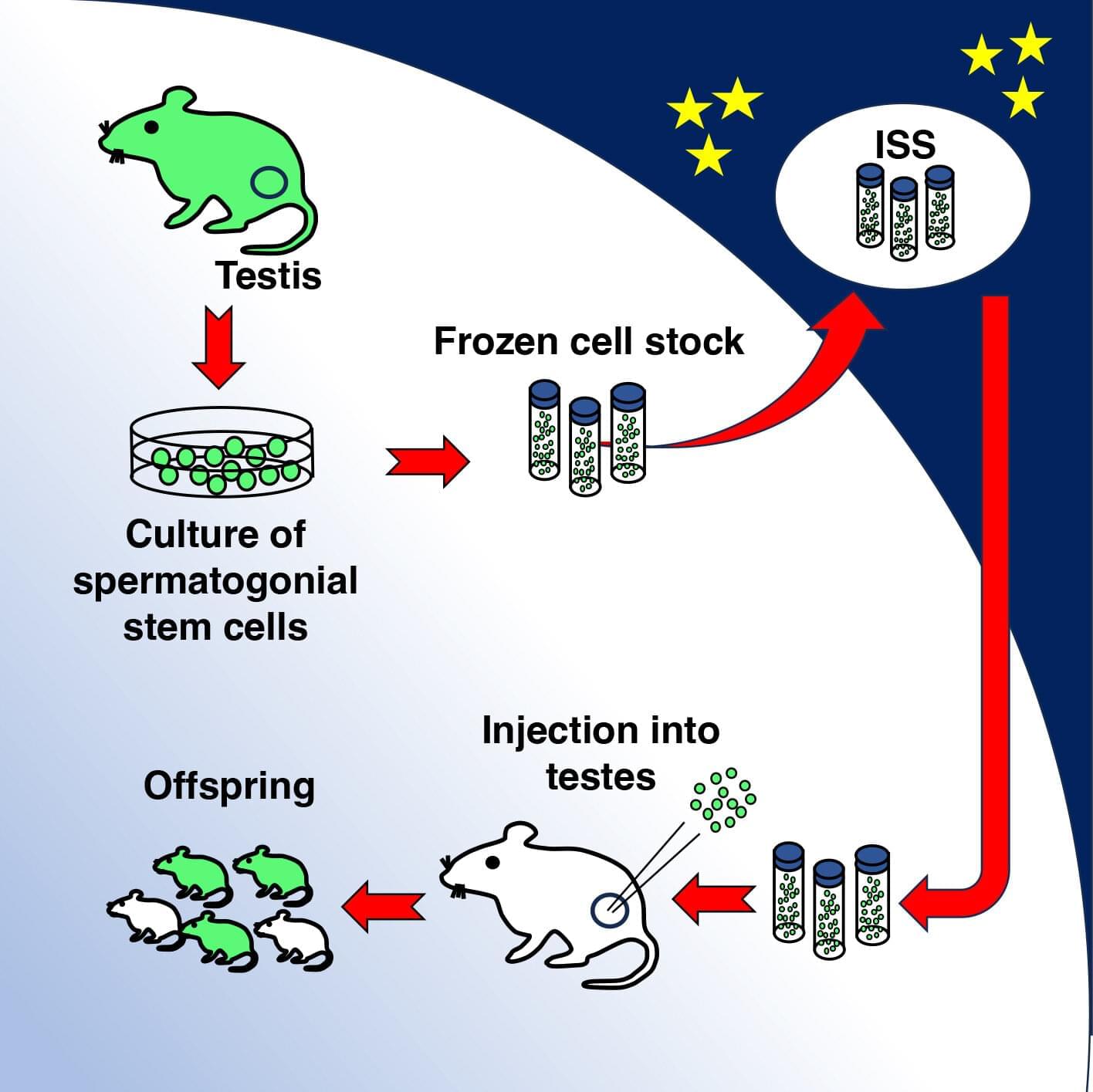Features of spaceflight such as gravitational changes and circadian rhythm disruption—not to mention radiation—take a toll on the body, including muscle wasting and decreased bone density. These may even affect the ability to produce healthy offspring.
Studying the impact of spaceflight on germ cells —egg and sperm precursor cells—is particularly important because they directly influence the next generation, and any irreversible damage done to these will likely be transmitted to offspring. Previous examinations of embryonic stem cells that have undergone spaceflight have revealed abnormalities, but the exact cause of the damage has remained unknown.
This inspired a team of researchers at Kyoto University to test the potential damage to spermatogonial stem cells during spaceflight and the resulting offspring. The team utilized stem cells from mice, which have a much shorter reproductive life span than humans.
